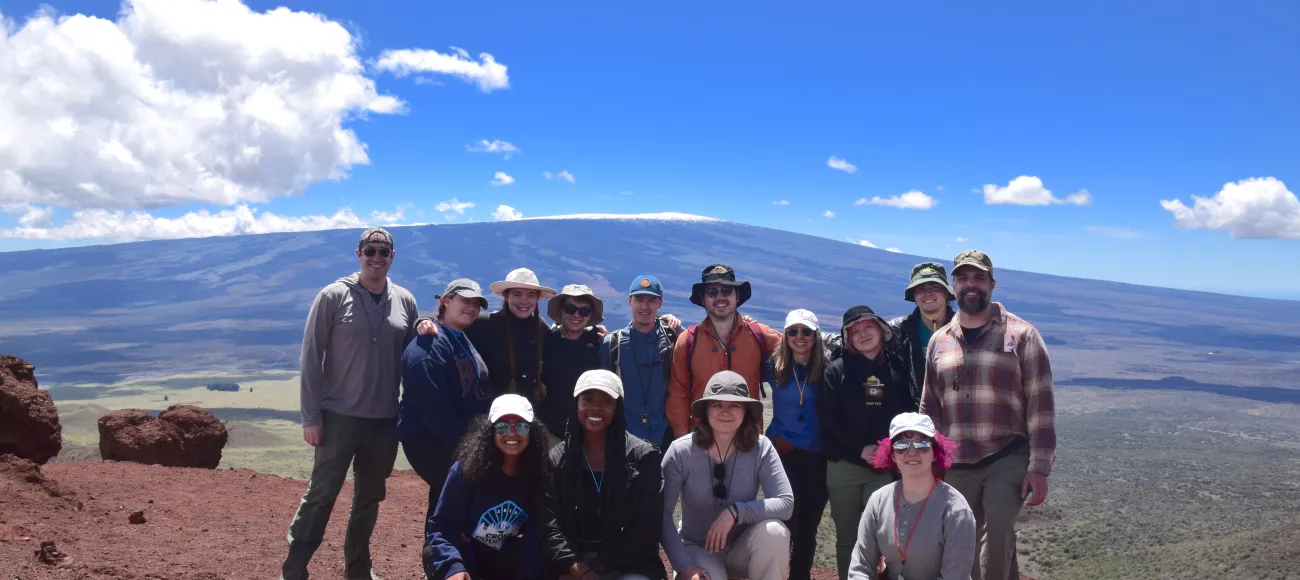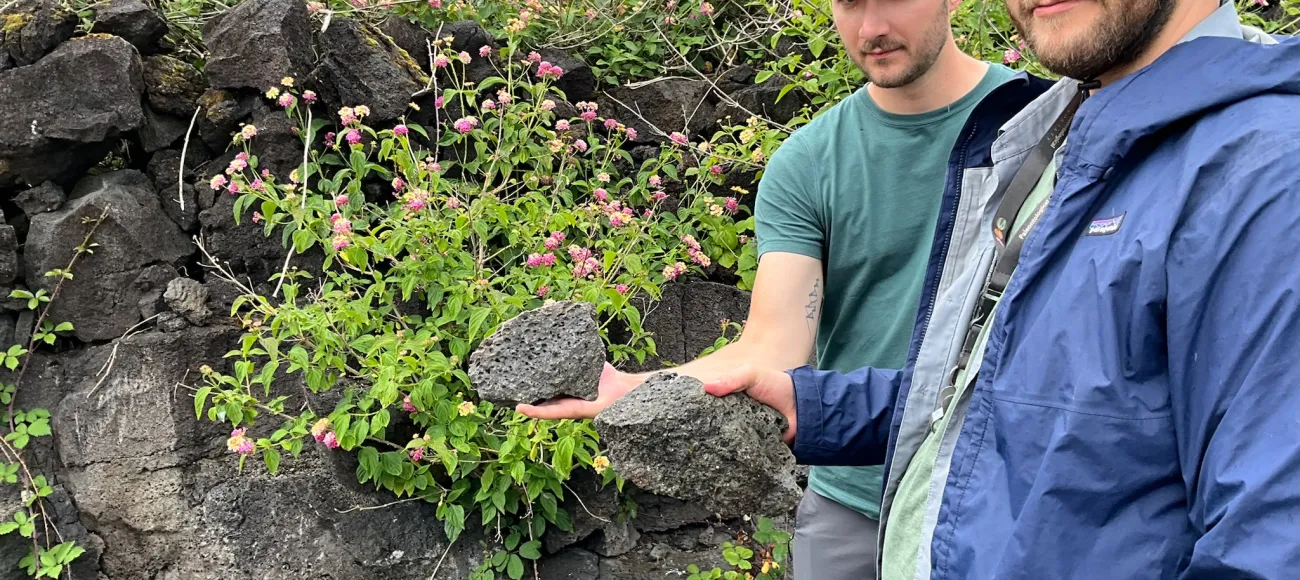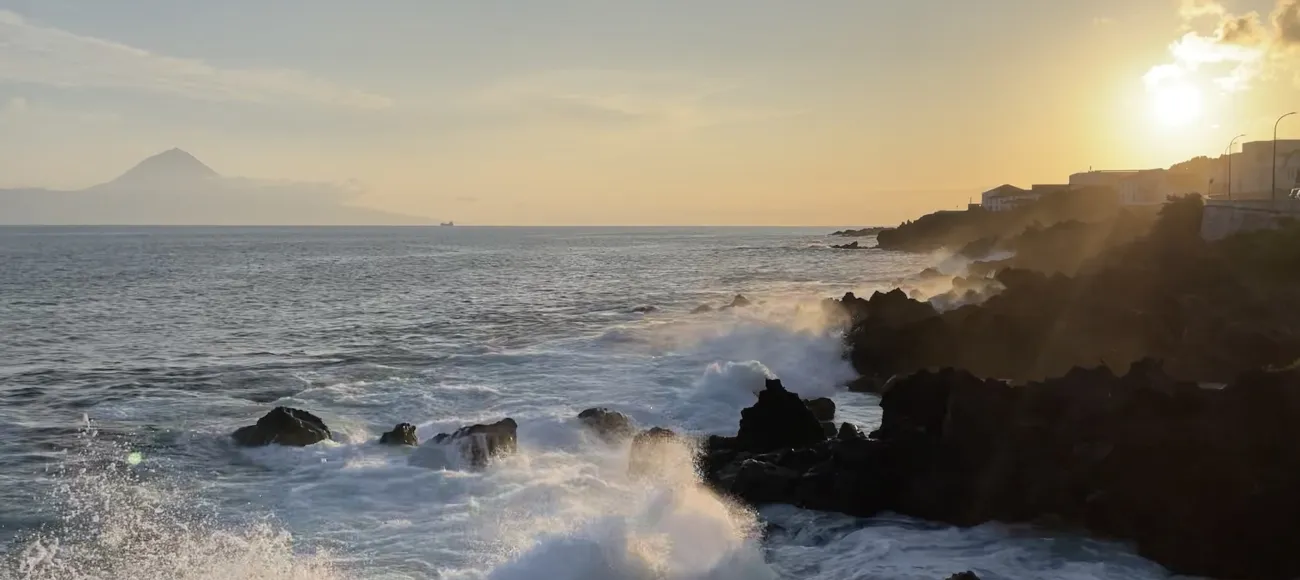Group work on lava flow from the 2018 eruption of Kilauea
Annual Newsletter 2023
Fall 2023 Edition
Alumni Newsletter
Fall 2023 Edition
Field Notes
A Field Trip to Hawaii and Sample Collection in the Azores
Group with Mauna Loa in the background, taken from Mauna Kea
Mason Neuman and Sam Patzowsky with rock samples in the Azores
Sunset on the shore at Calheta, Sao Jorge
Awards and Notables
Complete List of AwardsBradley Jolliff
Scott Rudolph Professor of Earth, Environmental, and Planetary Sciences Bradley Jolliff, Director of the McDonnell Center for the Space Sciences at Washington University, was elected to be on NASA’s Artemis III geology team.
William McKinnon
Professor William McKinnon was elected to the National Academy of Sciences in May 2023 and awarded the 2023 Kuiper Prize for outstanding contributions to planetary science from the American Astronomical Society.
Roger Michaelides
Assistant Professor Roger Michaelides has received a $75,000 exploratory seed grant from the Taylor Geospatial Institute to study the complex interplay of permafrost, vegetation, and wildfire risk.



